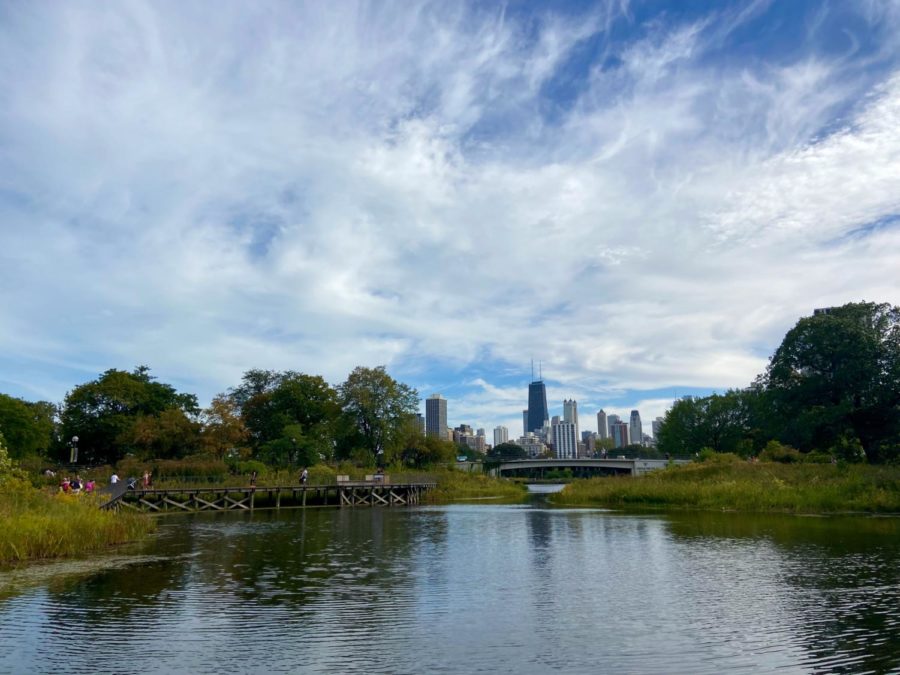Voters in Kenwood, Woodlawn, South Shore, and Hyde Park will vote on a binding referendum that could restore mental health services for low-income, underinsured communities on the Southeast Side. The referendum will also ask voters if the property tax in these neighborhoods should be raised by 0.025 percent to fund an Expanded Mental Health Services Program (EMHSP), a mental health clinic that would provide free mental health services for uninsured residents. The vote will take place on November 8, during the 2022 midterm elections.
The Coalition to Save Our Mental Health Centers, a nonprofit that advocates for EMHSPs across Chicago, was founded in 1991 in response to former mayor Richard M. Daley’s closing of seven of the city’s public mental health clinics. In 2011, organizers at the coalition led the effort to pass the Community Mental Health Services Act, which empowers communities to petition for and create a self-funded EMHSP.
Calls to restore affordable mental health services for low-income, underinsured communities come after a series of budget cuts during Daley’s term that planned to close most of the city’s public 19 mental health clinics by 2011. In 2012, then mayor Rahm Emanuel closed six out of the city’s 12 remaining public clinics. Today, only five of these clinics remain.
If voters approve the referendum on November 8, local organizations like the coalition will nominate community members to serve on a governing commission that will lead the EMHSP for Southeast Side communities. The commission will consist of nine members, five of them appointed by Governor J. B. Pritzker and four by Mayor Lori Lightfoot. The commission’s goal is to manage the EMHSP’s funds and mold the program’s services to meet the needs of the communities it serves.
Coalition organizer Rapheal Arteberry and his team spent the last two summers collecting signatures in support of getting the referendum on the ballot.
Arteberry hopes to eliminate the stigmatization of mental illness in communities across Chicago.
“When I first heard of this initiative, I was like, ‘This is definitely a no-brainer. Of course I’ll get involved,’” Arteberry said. “People like you and I—that is mental health. That is what mental health looks like—people that are out here that are just dealing with things on the regular.”
Jeanette Jones, a South Shore resident who joined the coalition as a volunteer in 2021, says that access to affordable mental health resources is especially urgent in her community.
“I was surprised that there were so many people who, when I stopped them and told them about the referendum, they said, ‘Yes! We need this! I wish I had the money [to seek mental health support]’ or ‘I wish I’d known where to go when my son was going through a mental health crisis last year.’ I received a lot of encouraging feedback from people when I asked them to sign the petition to have the referendum placed on the ballot,” Jones said.
Not all Southeast Side residents, however, approve of the proposed property tax increase that would fund the EMHSP.
Woodlawn resident Pam Smith says that she doesn’t think the property tax increase is necessary, although she supports the expansion of mental health services for Southeast Side communities.
“There’s no need to do anything special or extraordinary to expand mental health resources,” Smith said. “Check the budgets. Mental health always accounted for a drop in the bucket compared to other city stuff.”
Kenwood resident and mental health professional Dorothy Valin believes that property taxes should be raised across Cook County, not just for Southeast Side communities, to fund the EMHSP.
“The problem with the [proposed property tax increase] is that, in this proposal, the residents of Southeast Chicago, with a higher proportion of poorer people, would have their property taxes raised,” Valin said. “I think that taxes should be raised throughout the county, and the community centers [that then-mayor Rahm Emanuel] closed should be reopened. Then spread the increase throughout the county.”
But residents like Jones emphasize the need for affordable mental health services regardless of the source of funding.
“I see it in my community—the need for these services—because of gun violence and the trauma from gun violence and death,” she said. “And there are people dealing with racism and depression. Where do they go? The first thing you’ll hear in my community is ‘I’m not crazy’ or ‘There’s nobody crazy here.’ But it’s not about being crazy. It’s about maintaining or reestablishing a good mental perspective on life.”









